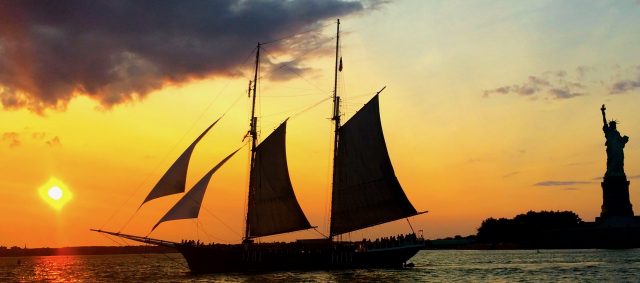A pandemic lesson for a post-pandemic world
2021-03-22Last April, Signature Travel Network CEO Alex Sharpe sent around a note that included reflections, by an anonymous author, on what was then the early stages of the pandemic. At that time, before politics, paranoia and paralysis came together to reshape the pandemic narrative, we frequently heard — and could deeply feel — the sentiment that “we’re all in this together.”
During lockdowns, we noisily cheered the essential workers who cared for the sick and dying. We faced new realities together: Everyone’s work lives had turned upside down, as did our children’s education and our ability to travel the world freely. Early on, we absorbed shock after shock, but there was a modicum of comfort that, after all, we were all in the same boat.
The short essay Sharpe shared took a variant of that outlook that both stripped it of sentimentality and added depth. “I heard it said we are all in the same boat, but it’s not like that. We are in the same storm, but not in the same boat,” it begins.
It pointed out that quarantine for some included moments of reflection and reconnection. For others, desperation and familial crisis.
On it goes: Peace, or loneliness. Deep loss, or lack of concern. Mere inconvenience, or deprivation.
Indeed, there are as many boats as there are emotions and experiences, our journey impacted by location, resources, family and age, our proximity to support, the strength of those closest to us and the durability of those we depend upon for our livelihoods. We’ve learned the ways we are interconnected, or not, but as the last line confirms, “We are all on different ships during this storm, experiencing a very different journey.”
Sharpe’s only comment when he sent it out was, “Perspective and empathy: May we all increase in these during this historical time in our lives.”
The end of the crisis seems tantalizingly near, and it may well be perspective and empathy that get us over the finish line. The struggle to balance health and economic concerns, the imperative to keep businesses alive versus the need to keep the vulnerable safe, still face us. These desires often seem to compete, to lead to binary choices in which one path excludes the other. Politicians certainly try to exploit this seeming polarity to their advantage, but we don’t have to welcome divisive messages aboard our boats.
The travel industry took the first hit, and the pandemic sent us reeling. But the industry may also be setting the example for how empathy and perspective can reconcile the twin imperatives of health and economic well-being. From the beginning, the industry has worked to both make travel safer and keep businesses afloat. Airlines, hotels, tour operators and cruise lines spared no expense to learn how to operate safely.
As we get closer to normality, thanks largely to vaccine distribution, I’m heartened to see more and more industry suppliers adopt commonsense policies that will benefit their businesses and protect their guests. And appropriate to the essay’s metaphor, it is boats — mostly ships, actually — that are now leading the way.
The only industry segment that was not allowed to operate out of the U.S., the cruise industry, is moving boldly, with empathy and perspective, to get their businesses going where they can by planning responsible sailings. Royal Caribbean International, Crystal, Saga, Virgin Voyages and the American Queen Steamboat Co. have all announced either policies or individual sailings where vaccines will be required to board.
Everyone is feeling their way through this, and Royal’s hybrid approach — requiring vaccines for a departure from Israel, where 90% of the population has been vaccinated, but not for Singapore (at least, not yet), where only 7% have been jabbed — may become the norm for a transition period. The calculus for Crystal, American Queen and, in the U.K., Saga is no doubt influenced by their guest demographics, which skew older and therefore most likely to be in the first wave of vaccinations.
Virgin’s announcement is the boldest; they are adults-only, but a decidedly younger demographic. They are taking President Biden at his word that any adult who wants a vaccine can get one by the end of May.
These are, of course, business decisions, as were Royal’s interest-free loans to travel agencies or the double commission policies most lines adopted. They demonstrate that perspective and empathy can go hand in hand with self-interest. In reality, they are inextricably linked.
That truism — “we are all in the same storm, but not in the same boat” — is elastic and applies to life well beyond the pandemic. It provides a framework for discussions about race and gender. Political and economic differences. Religion and ethnicity.
And once we’re all traveling again, this understanding — that we’re all in the same storm, but not in the same boat — will provide a perspective to better understand, and appreciate, the places we visit.
Courtesy of Travel Weekly


